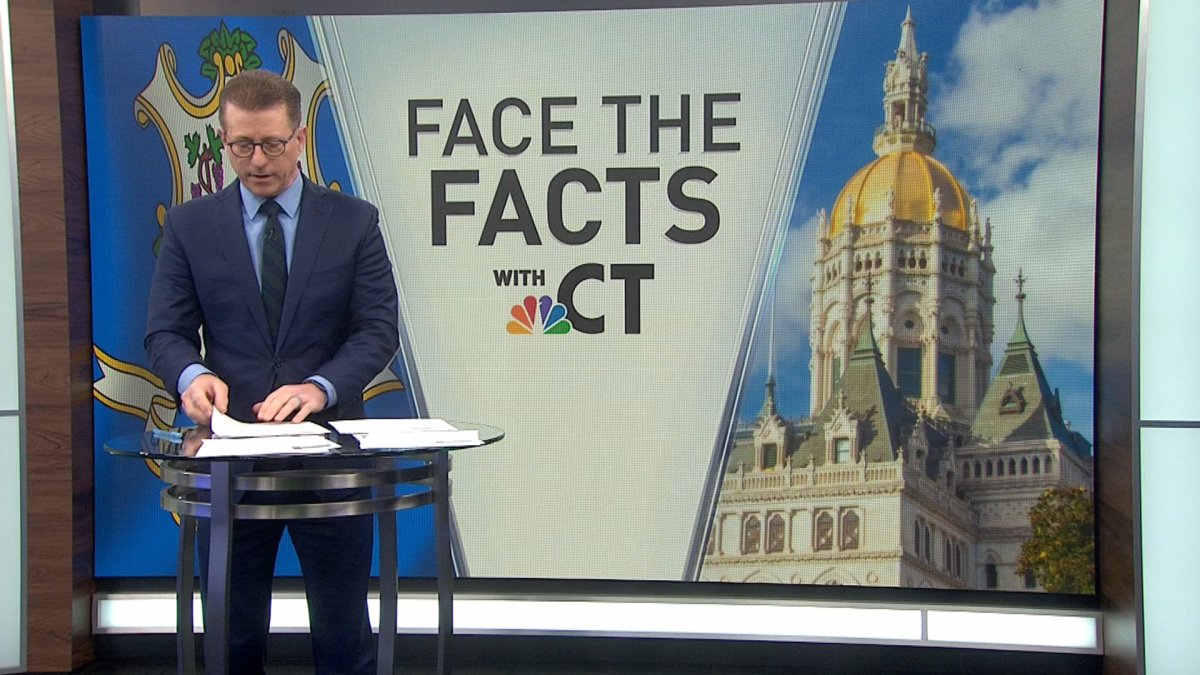
Brenda Watson, executive director of Operation Fuel, talks about expanding eligibility to meet the anticipated need for heating assistance this winter.
An increase in energy assistance is going to help low income families get through the winter. But skyrocketing fuel costs are a real concern for many in the state.
Operation Fuel provides assistance to families across Connecticut. Executive Director Brenda Watson explains how expanding eligibility can help many more families.
Mike Hydeck: So first off, who qualifies for Operation Fuel? And then how can someone find out if they do or don't?
Brenda Watson: Anyone earning 60% of the state median income and above qualifies for Operation Fuel. We typically cap it at 75% of state median income. But given the circumstances this season, although the anticipated circumstances coming down the pike in January, we are expanding our eligibility guidelines.
Get Connecticut local news, weather forecasts and entertainment stories to your inbox. Sign up for NBC Connecticut newsletters.
Mike Hydeck: So to state medium income, what are real numbers here, we're talking about $75,000 a year for an individual or what are the actual numbers?
Brenda Watson: So for 75% of the state meeting income, a household of four earning under $97,000 gross would qualify for Operation Fuel. But again, because of the unprecedented increase in electric rates that are going to kick in January 1, we're expanding that up to 100% of the state median income. For a household of four, that's roughly around $127,000 annual. And I know that sounds like a lot of money, but once one pays their taxes and pays their other costs for basic needs, there really isn't much left at the end of the week. So what we want to do is avoid folks to fall into a deep crisis, if they're finding that their energy bills are out of reach.
Mike Hydeck: So we also know obviously, global events are playing a factor here, local events with electric rates as well are playing a factor. Energy assistance programs, other ones, too, are seeing an influx of applications. I assume that's the same for you. Is there concern about the money running out in the program?
Face the Facts
Face the Facts with NBC Connecticut goes beyond the headlines, asking newsmakers the tough questions, giving an in-depth analysis of the big stories.
Brenda Watson: Yes, our summer/fall program season runs from July through the end of October, and we were unexpectedly hit with double the amount of requests for assistance. We typically serve around 1,900 to 2,000 households in that time period. And in that summer season, we doubled that, we served over 4,000 households. And we were really caught off guard by that. And we're actually still processing some of those applications, we're just about done. But we were again really just kind of caught off guard, we weren't expecting the demand to be that high. So we're expecting to kind of experience that again, once we reopen December 19th and we run through the end of June, where we're expecting to serve roughly either double or triple the amount that we typically serve in a winter season, which is around 4,000 households.
Mike Hydeck: That is a significant bump. Well, we know that the governor talked recently, that some of the, Operation Fuel and others, are going to get money from the utilities. So UI, Eversource. Is that the case for Operation Fuel?
Brenda Watson: So, we're still waiting on final details. We really are excited about working those details out with the governor's office. And we are grateful to this administration for seeing the need and anticipating the need and wanting to respond to it. So we're just, again, waiting to hear final final details. And we're happy to share that, I'm happy to come back on your show and share what those details are when we get them.
Mike Hydeck: I heard in some reports, it says it's about $3 million, but I guess the details are still being figured out. Okay, so there is a misconception apparently that utilities can't shut your power off in the winter months, or your heat off in the winter months. Is that true? Or what does the law actually say here?
Brenda Watson: So the winter protection, also known as the winter moratorium, protects those who are coded hardship. And those are customers who have incomes at 60% of the state median income and below. So as far as I know, I don't know if that law has changed, but folks who are earning over that 60% of the state median income do not qualify for hardship. So in that case, yes, customers can be shut off during the winter season.
Mike Hydeck: Last question, I got about 30 seconds. How do you determine if you are designated hardship or not? Is it really just your income level? And do you have to apply and put your name in an application process to be qualified for that?
Brenda Watson: Yes, it is based on income and you have to demonstrate that income to the utility companies through either one of the community action agencies that are across the state, or with Operation Fuel. Operation Fuel can actually also help customers get coded for hardship.
Mike Hydeck: And applications for Operational Fuel, just a reminder, open on December 19th, 18 days, very soon from now.
For more information, visit Operation Fuel's website.